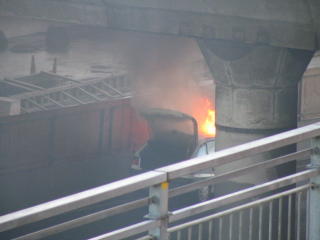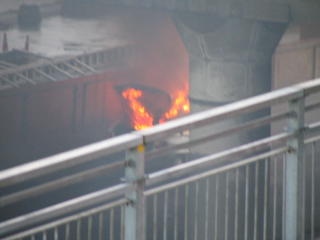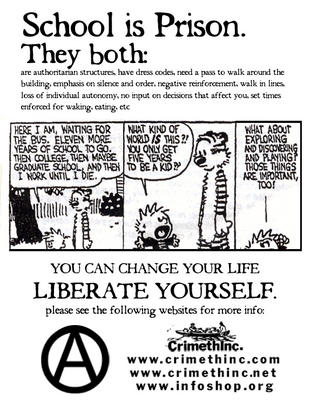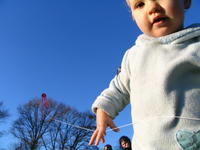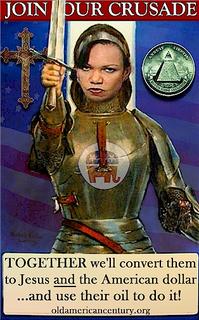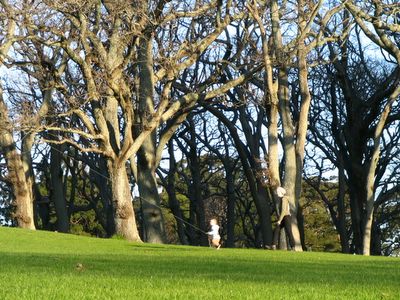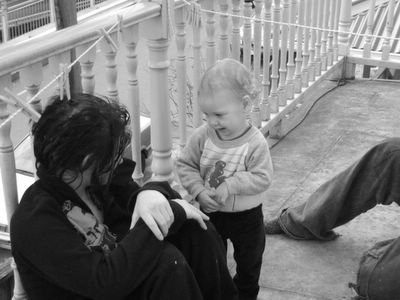What Do Anarchism, Voting, Microwave Heat-Dishes, And The 1500's Have In Common?
This post! (have I hooked you?)
 New zealand is gearing up for elections, which are to take place very soon (in new zealand there is proportional representation and elections occur every three years; not that it ensures democracy). There is A LOT of dialogue and debate in anarchist circles about whether or not anarchists should vote. Some anarchists argue:
New zealand is gearing up for elections, which are to take place very soon (in new zealand there is proportional representation and elections occur every three years; not that it ensures democracy). There is A LOT of dialogue and debate in anarchist circles about whether or not anarchists should vote. Some anarchists argue:- If voting could change anything it would be illegal (Emma Goldman).
- Our dreams don't fit into their ballot boxes.
- There's no difference between tweedle-dee and tweedle-dumber.
- Voting legitimises the state.
- Capitalism is not one person one vote, but one dollar one vote.
- Low voter turnouts show how disenfranchised civil society is with electoral politics.
And the list goes on. I used to agree with many of these sentiments until an
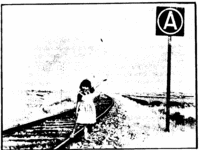 anarchist/activist whom I regard very highly sent me this article; and my mind was changed for good. I posted the electronic version on new zealand's indymedia, where you can read it and participate in the ongoing debate! Either way, if you have decided to eat your ballot, MAKE SURE you check out the recipes at this site; otherwise the lack of choice will give you a terrible aftertaste!
anarchist/activist whom I regard very highly sent me this article; and my mind was changed for good. I posted the electronic version on new zealand's indymedia, where you can read it and participate in the ongoing debate! Either way, if you have decided to eat your ballot, MAKE SURE you check out the recipes at this site; otherwise the lack of choice will give you a terrible aftertaste!On to Iraq... What reasons do those poor conservatives have left for breaking international law and launching Operation Iraqi Liberation (O.I.L). Let's count together:
- Nuclear Materials from Africa. - Proven False.
- There was a connection with September 11th. - Come on, there was barely a connection with afghanistan.
- Weapons of Mass distraction, er distruction. - Proven False.
- Saddam Hussein was in a position to attack the united $tates. - Proven False.
O.k, o.k, I've heard enough FOX "news" to know that Saddam Hussein was a bad guy who killed and tortured almost as many iraqis as the UN sanctions and constant bombing since 1991. Oh..oh; what about this story? Looks like it's back to the drawing board.
Still on the topic of eye-rack, you've no doubt heard the controversy over stun guns right? Well how about a giant radiation dish that repels crowds by burning them? Sound like science fiction? Looks like they should be ready by next year!
 What do you consider to be free speech? Is it still free speech if no one can hear you? How about if politicians can't hear you? It seems as though, just as this british protester was becoming effective, his right to free speech was...well...muted!
What do you consider to be free speech? Is it still free speech if no one can hear you? How about if politicians can't hear you? It seems as though, just as this british protester was becoming effective, his right to free speech was...well...muted!The last question is related again to britain: Is christian fundamentalism as bad as islamic fundamentalism? How about market fundamentalism? These questions remind me of part of a speech from Tony Blair when he said "We hold our beliefs, every bit as strongly as the terrorists hold theirs" (You can watch him saying it on this clip). Well that may be, but how then can he say that britain bombing innocent civilians is no justification for anyone else doing it in return? Umm, no one said it was a justification; but many people ARE starting to draw the links, between the tactics of the terrorists and the foreign policy of the country that invented bombing innocent civilians when they bombed Dresden to smithereens during the second world war.
O.k, from current events, to some hind-sight from the 1500's. Here is some interesting information I'd like to share. Note how much of our language is rooted in class structure:
The next time you are washing your hands and complain because the water temperature isn't just how you like it, think about how things used to be.Here are some facts about the 1500s:
Most people got married in June because they took their yearly bath in May,and still smelled pretty good by June. However, they were starting to smell, so brides carried a bouquet of flowers to hide the body odor. Hence, the custom today of carrying a bouquet when getting married.
Baths consisted of a big tub filled with hot water. The man of the house had the
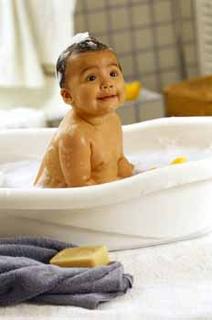 privilege of the nice clean water, then all the other sons and men, then the women and finally the children Last of all the babies. By then the water was so dirty you could actually lose someone in it. Hence the saying, "Don't throw the baby out with the bath water."
privilege of the nice clean water, then all the other sons and men, then the women and finally the children Last of all the babies. By then the water was so dirty you could actually lose someone in it. Hence the saying, "Don't throw the baby out with the bath water."Houses had thatched roofs-thick straw-piled high, with no wood underneath. It was the only place for animals to get warm,
 so all the cats and other small animals (mice, bugs) lived in the roof. When it rained it became slippery and sometimes the animals would slip and off the roof. Hence the saying "It's raining cats and dogs."
so all the cats and other small animals (mice, bugs) lived in the roof. When it rained it became slippery and sometimes the animals would slip and off the roof. Hence the saying "It's raining cats and dogs."There was nothing to stop things from falling into the house. This posed a real problem in the bedroom where bugs and other droppings could mess up your nice clean bed. Hence, a bed with big posts and a sheet hung over the top afforded some protection. That's how canopy beds came into existence.
The floor was dirt. Only the wealthy had something other than dirt. Hence the saying "dirt poor." The wealthy had slate floors that would get slippery in the winter when wet, so they spread thresh (straw) on floor to help keep their footing. As the winter wore on, they added more thresh until when you opened the door it would all start slipping outside A piece of wood was placed in the entranceway. Hence the saying a "thresh hold."
In those old days, they cooked in the kitchen with a big kettle that always hung over the fire. Every day they lit the fire and added things to the pot. They ate mostly vegetables and did not get much meat. They would eat the stew for dinner, leaving leftovers in the pot to get cold overnight and then start over the next day. Sometimes stew had food in it that had been there for quite a while. Hence the rhyme, "Peas porridge hot, peas porridge cold, peas porridge in the pot nine days old."
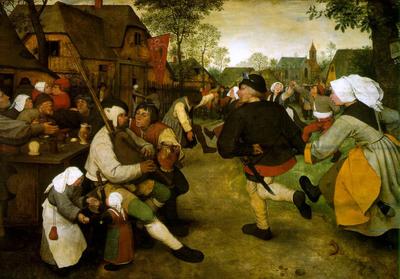
Sometimes they could obtain pork, which made them feel quite special. When visitors came over, they would hang up their bacon to show off. It was a sign of wealth that a man could "bring home the bacon." They would cut off a little to share with guests and would all sit around and "chew the fat."
Those with money had plates made of pewter. Food with high acid content caused some of the lead to leach onto the food, causing lead poisoning death. This happened most often with tomatoes, so for the next 400 years or so, tomatoes were considered poisonous.
Bread was divided according to status. Workers got the burnt bottom of the loaf, the family got the middle, and guests got the top, or "upper crust." Lead cups were used to drink ale or whisky. The combination would sometimes knock the imbibers out for a couple of days. Someone walking along the road would take them for dead and prepare them for burial. They were laid out on the kitchen table for a couple of days and the family would gather around and eat and drink and wait and see if they would wake up. Hence the custom of holding a "wake."
England is old and small and the local folks started running out of places to bury people. So they would dig up coffins and would take the bones to a "bone-house" and reuse the grave. When reopening these coffins, 1 out of 25 coffins were found to have scratch marks on the inside and they realized they had been burying people alive. So they would tie a string on the wrist of the corpse, lead it through the coffin and up through the ground and tie it to a bell. Someone would have to sit out in the graveyard all night (the "graveyard shift") to listen for the bell; thus, someone could be saved by the bell" or was considered a "dead ringer!!!"
Well, enough of the past; it's time to live in the now! Gotta scram.
John D






